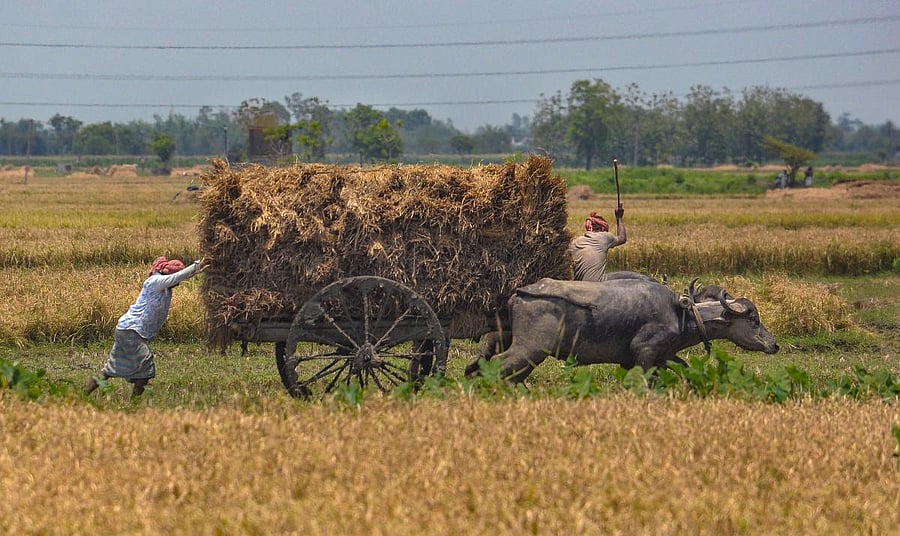
A couple of decades ago, a telecom czar told me about the 1991 reforms: “Suddenly we could breathe.” If the three proposed agriculture reforms announced by Finance Minister Nirmala Sitharaman actually go through, a farmer could well be saying that soon.
The three reforms are: Amending the Essential Commodities Act, 1955 (ECA); a new Central law on agricultural marketing; and, a legal framework to facilitate contract farming. All three are long overdue. It is a pity that it required a pandemic-induced economic crisis to push these, but that’s India – reform comes only when the back is against the wall.
Sure, these will not transform agriculture overnight or bring immediate gains to farmers. But these will lay a strong foundation for the growth of the most regulated private sector. How?
Amending the ECA: The ECA, a scarcity-era law, enabled the central government to control the production, supply and distribution of specific essential commodities. The list of items is decided by the Centre in consultation with the states, and individual state governments decide the stockholding limits after consulting the Centre.
But the stock limits (with extremely stiff penalties) not only hampered operations of private trade as well as food processing units (which need to buy in bulk and store) but also disincentivised agriculture infrastructure companies which need to deal in large volumes in order to be viable.
This is one of the reasons why agriculture infrastructure is so woefully lacking despite numerous fiscal concessions over the last couple of decades. Incidentally, the Rs 1 lakh crore Agri Infrastructure Fund also announced on Wednesday would have had zero effect on the ground if ECA had continued in its present form.
The proposed amendments will remove cereals, edible oils, oilseeds, pulses, onions and potatoes from the ECA and stock limits will be imposed only during times of national calamity and famines and not whenever their seasonal price spikes hurt urban consumers as has been happening far too often. This invariably hurt farmers.
Freeing up agri marketing: A new agricultural marketing law giving farmers choice to sell, barrier-free inter-state trade and e-trading of agricultural produce will be a huge deal. The current state-level Agricultural Produce Marketing Committee (APMC) laws limited farmers to state-run mandis in their area; they could not even sell to a mandi elsewhere in a state.
A model APMC law giving farmers choice about whom to sell their produce to was being pushed by central governments since 2003. Some states enacted it (albeit with dilutions) but did not frame the relevant rules, rendering them ineffective. Some states de-listed items from their respective Acts but quickly rolled back the decision.
As a result, large private companies could not buy directly from the farmer even if they agreed to pay the mandi fee (even though this would be an unnecessary extra cost). Those that ventured into this space – ITC, Tatas, Mahindras, DCM – all had a uniformly bad experience. Private markets were actively discouraged. Farmers could not avail the benefit of price discovery in competing markets or sell to those who offered a better price.
The APMC law also hampered the e-NAM (electronic National Agricultural Market) initiative launched with much fanfare in 2015. By confining the farmer to the assigned mandi, it was never more than electronic trading replacing physical trading; the farmer was again denied the benefit of competition even within a state. If the new law, as promised, allows inter-mandi and inter-state trade, then e-NAM will also become more effective.
Since agricultural trade and commerce is a concurrent list subject, successive Central governments (including the first Narendra Modi one) had been loath to do anything barring coaxing states regularly to adopt the model APMC law. Now, with a new Central law that will give farmers choice and allow inter-state trading, states may have little option other than to amend their legislations to conform.
Facilitating contract farming: The proposed “legal framework on agriculture produce price and quality assurance” is really about facilitating contract farming. Currently, barring Punjab, no state has a separate law on contract farming. Contract farming is part of the amended APMC legislations in 20 states, but only 14 have notified the rules to allow it and of these only seven have registered companies to undertake contract farming, according to the report of the committee on doubling farmers’ income.
In the past, there have been contract farming experiments which have singed farmers and if the proposed legal framework balances the interests of both farmers and procurers (with a slight skew towards farmers to make it politically saleable), then it should give a fillip to agri-commerce.
But let’s not consider this a done deal right now. Laws have to be passed by Parliament and a resentful Opposition will certainly try its best to stall this (if only by not allowing Parliament to function). Opposition-ruled states may use whatever little elbow room they have to prevent these reforms taking off at the ground level (though they will not be able to stop inter-state trade).
Lobbying by pressure groups may result in provisions that limit the proposed freedoms (the e-NAM initiative is a prime example). Contract farming may not help tenant farmers unless states bring in/amend land leasing laws (a state subject). If Narendra Modi really wants to usher in a new deal for farmers he needs to stay firm on this path and push BJP-ruled states to move on the land leasing laws.
This is what the late Sharad Joshi had been pressing for over decades. He died a disappointed man. He must be smiling from up there.
(The writer is a senior journalist and author)